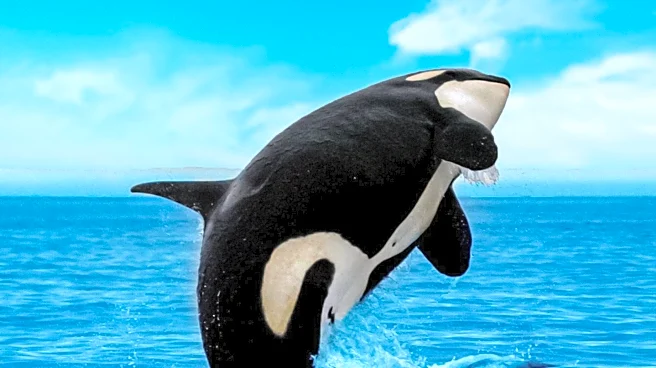What's Happening?
Kshamenk, an orca held in captivity for over three decades at Mundo Marino in South America, has become a focal point in the debate over marine animal welfare. The orca's confinement in a small tank has raised concerns about the physical and psychological
impacts of captivity on cetaceans. Behavioral research indicates that such conditions lead to shortened lifespans, increased stress levels, and physical deterioration. Despite arguments from Mundo Marino that Kshamenk cannot be released into the wild, advocates are pushing for his relocation to a sanctuary that offers a more natural and humane environment.
Why It's Important?
The situation with Kshamenk underscores a broader shift in public opinion and policy regarding the ethical treatment of marine animals. Countries like France and Canada have already enacted laws to limit or ban the use of cetaceans for entertainment, reflecting growing awareness and advocacy for animal rights. The establishment of sanctuaries, such as the one planned in Nova Scotia, represents a viable alternative to traditional captivity, offering a compromise that balances animal welfare with practical considerations. This movement could influence future legislation and industry practices globally.
What's Next?
The development of the Whale Sanctuary Project in Nova Scotia marks a significant step forward in providing a humane alternative for captive marine animals. As this project progresses, it may set a precedent for similar initiatives worldwide, encouraging facilities to transition from traditional captivity to sanctuary models. The success of such projects could lead to increased pressure on marine parks and aquariums to reevaluate their practices and adopt more ethical standards. Continued advocacy and public support will be crucial in driving these changes.














